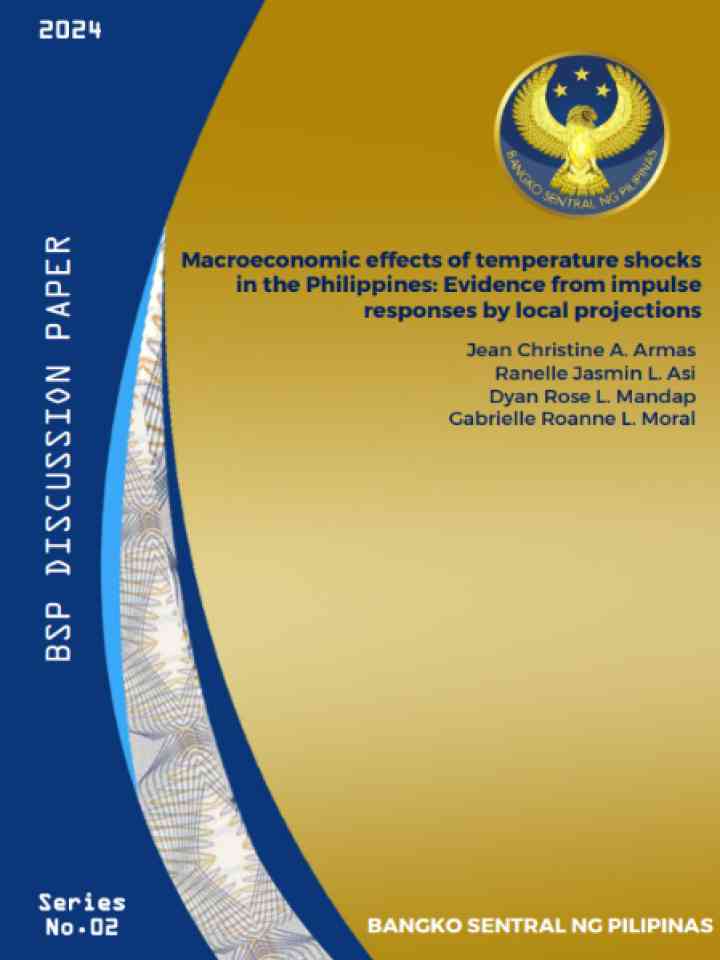Macroeconomic effects of temperature shocks in the Philippines: Evidence from impulse responses by local projections
This study is the first in the country to quantify the contemporaneous and long-term effects of temperature shocks on output growth and other channels of economic activity as well as on inflation, which are the primary considerations of the Bangko Sentral ng Pilipinas in its assessment of the appropriate monetary policy stance.
This study finds that, on the average, the short-run marginal impact of a 1-degree Celsius increase in the country’s annual mean temperature reduces aggregate output growth by 0.37 percentage point (ppt). This result is robust and consistent even after introducing other model specifications. The decline in output growth is larger at 0.47 ppt when controlling for episodes of El Niño Southern Oscillation (ENSO) events vis-à-vis the 0.30 ppt drop in output growth after controlling for the occurrence of floods and storms. The study also indicates negative effects on crop production and sectoral output. However, it finds that temperature shocks do not significantly affect labor productivity in heat-exposed industries such as construction, transportation, and manufacturing.
Explore further
